The Cortisol Clock: How Your Body’s Stress Hormone is Fast-Forwarding Your Biological Age

At 3 AM, Mitcheal jolts awake with his heart racing—again. What she doesn’t realize is that this chronic stress response isn’t just stealing her sleep; it’s literally fast-forwarding her biological clock. Every sleepless night ages her cells faster than they should.
You might think stress only affects how you feel. But chronic stress and high cortisol levels are making you biologically older than your real age. Your stress hormone effects go deeper than fatigue and worry—they’re changing your DNA and shortening your lifespan.
Here’s what you’ll learn in this guide. First, how cortisol and aging connect at the cellular level. Then, how to test your real biological age compared to your calendar age.

Most importantly, you’ll get proven methods to lower your cortisol and reverse stress-induced aging. These aren’t feel-good tips—they’re science-backed strategies that can add years to your life. You can slow down your biological clock starting today.
How Cortisol and Aging Are Connected at the Cellular Level

Your body makes cortisol to handle short-term stress. Think of it like a fire alarm. It goes off, you deal with the problem, then it stops.
But chronic stress keeps that alarm blaring 24/7. Your cortisol levels stay 23% higher than they should be. This breaks down your cells from the inside out.
Here’s what happens: Cortisol attacks your telomeres. These are like plastic tips on shoelaces that protect your DNA. When they get shorter, your cells age faster and die sooner.
Cortisol also blocks your body’s repair system. Your cells can’t fix daily damage anymore. Plus, it triggers inflammation throughout your body. This creates harmful molecules that rust your cells like old metal.
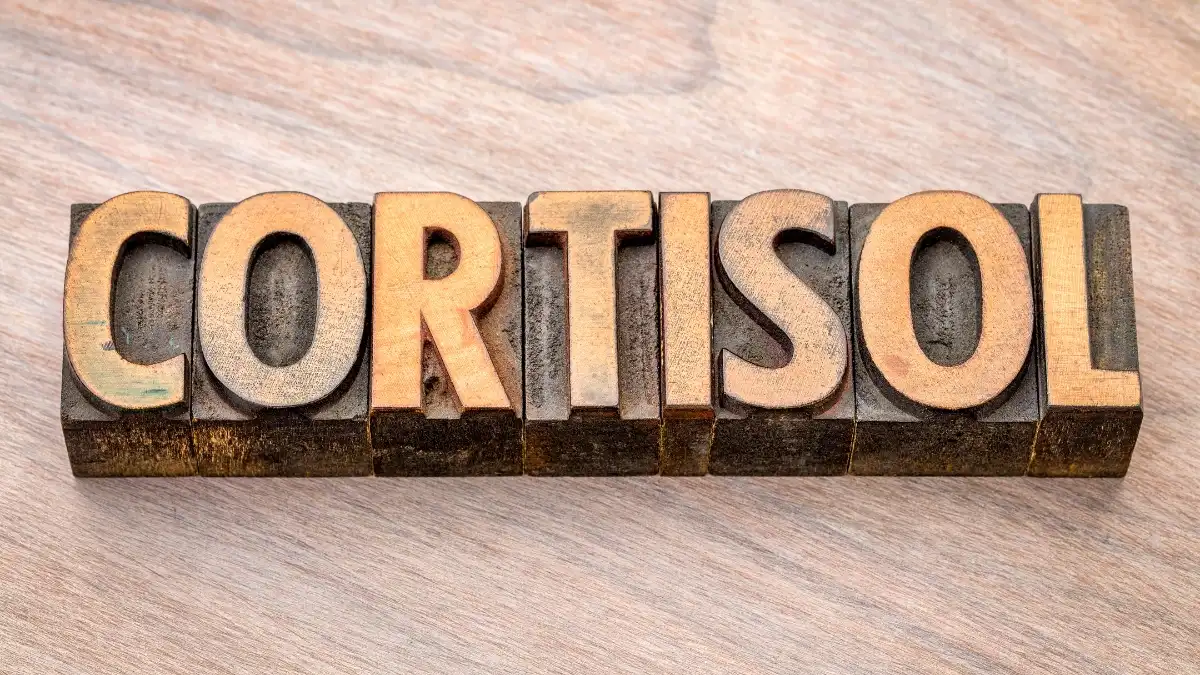
UCSF researchers found that chronic stress can age your cells by 9-17 extra years. That means a 40-year-old could have the cellular age of someone who’s 57.
Your stress hormone effects don’t just make you feel bad. They literally speed up cellular aging at the DNA level.
7 Warning Signs Stress Hormones Are Aging You Prematurely
Your body sends clear signals when cortisol is fast-forwarding your biological clock. Most people miss these cortisol and aging symptoms because they seem normal for busy adults. Here’s what to watch for.
1. Your Hair is Going Gray Too Fast
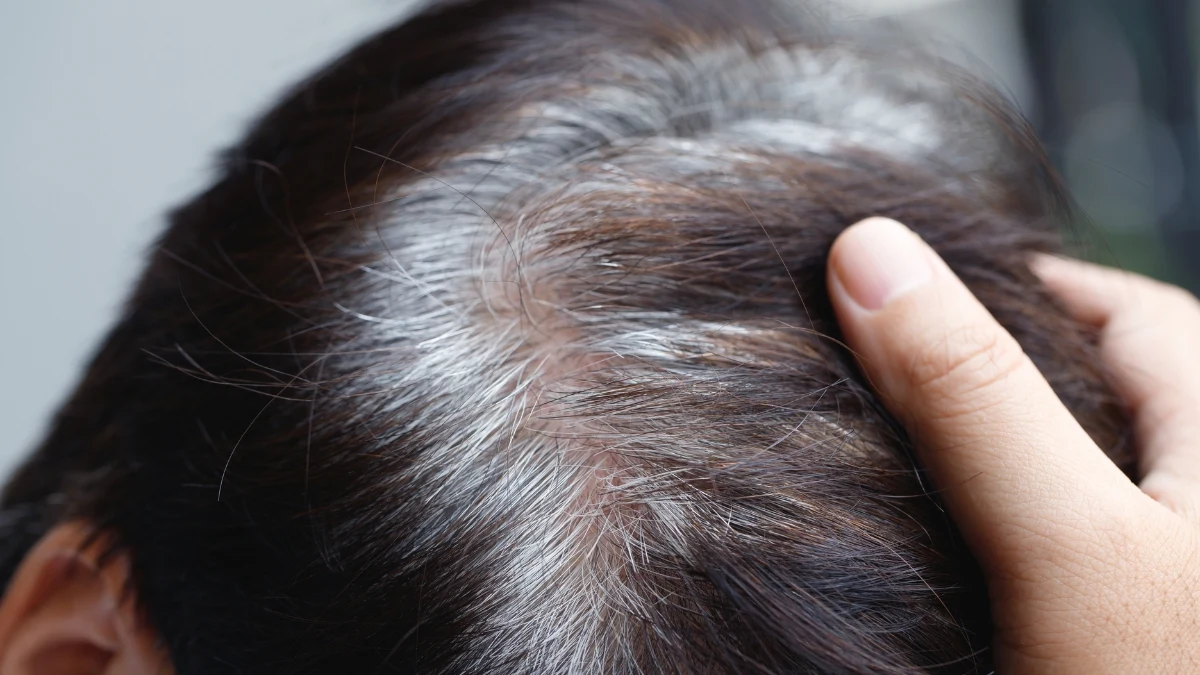
Gray hair isn’t just about getting older. Chronic stress damages the cells that make hair color. High-stress jobs like emergency room doctors show 40% more gray hair than librarians of the same age.
Your hairline might also recede faster. Cortisol shrinks hair follicles and shortens the growth cycle. This makes your hair thinner and more brittle too.
2. Wrinkles Appear in Wrong Places
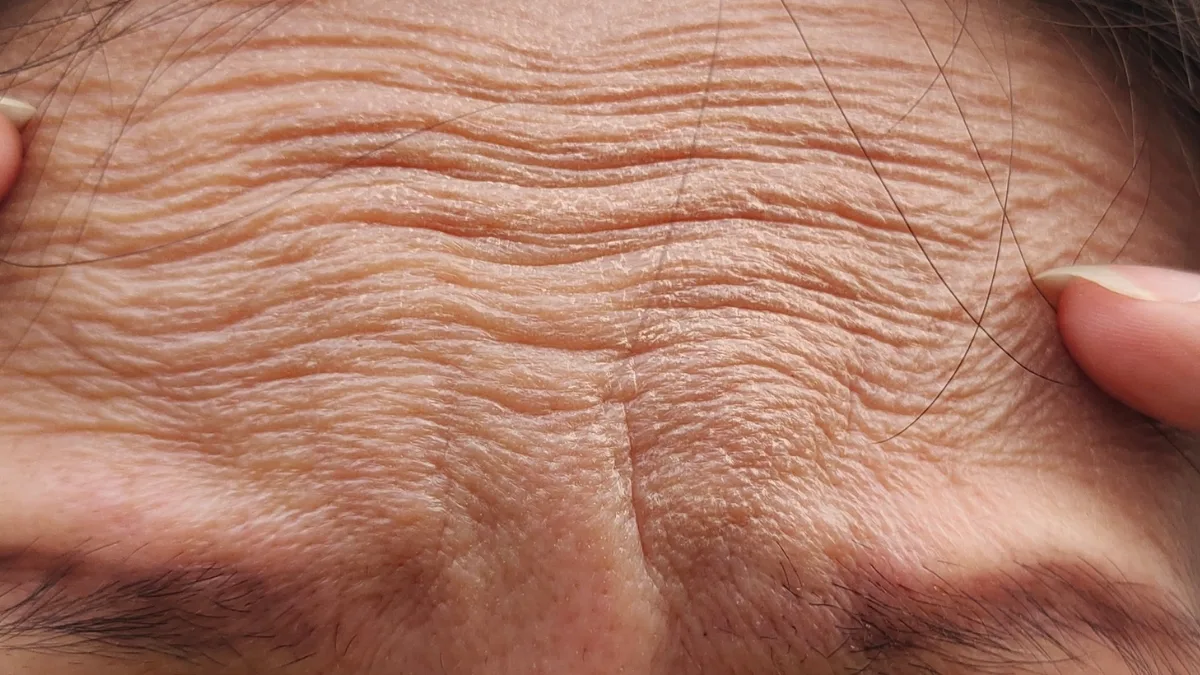
Stress wrinkles show up differently than age wrinkles. You’ll see deep lines between your eyebrows from frowning. Crow’s feet develop from squinting when tense.
Cortisol breaks down collagen faster than your body can rebuild it. This is why 35-year-old investment bankers often look 45. Their biological age markers match someone much older.
3. You Gain Weight Around Your Middle
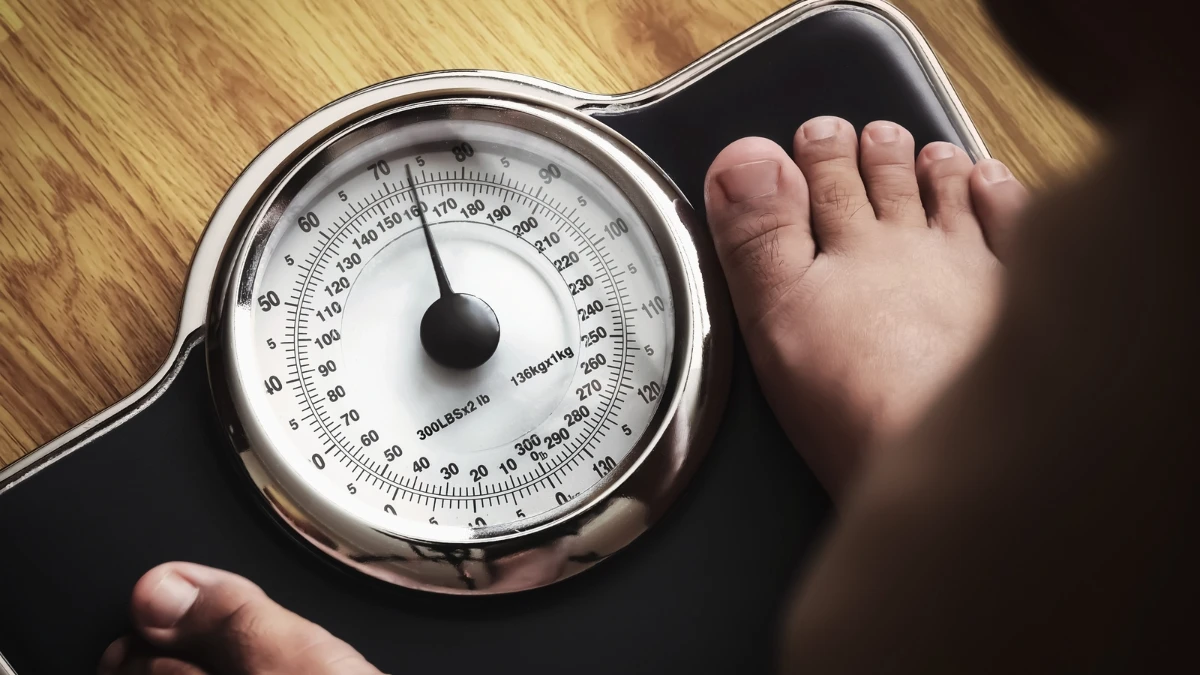
Belly fat is cortisol’s signature. High cortisol makes your body store fat around your organs. This isn’t the same as eating too much. It’s hormonal weight that’s hard to lose with diet alone.
Your face might get rounder too. This happens because cortisol moves fat to your face and upper back. Flight attendants show less of this pattern than air traffic controllers, even though both travel constantly.
4. Your Brain Feels Foggy

Memory problems start small. You forget where you put your keys. Names slip away during conversations. This isn’t normal aging at 35 or 45.
Cortisol damages the hippocampus, your brain’s memory center. It also reduces the proteins that help brain cells communicate. Police officers in high-crime areas show more cognitive decline than those in quiet suburbs.
5. You Can’t Sleep Through the Night

Waking up at 3 AM with racing thoughts is a red flag. Your cortisol should be lowest at night. But chronic stress keeps it elevated when you should be resting.
You might fall asleep fine but can’t stay asleep. Or you wake up tired even after 8 hours. This broken sleep pattern ages you faster than staying up late occasionally.
6. You Get Sick More Often

Colds that last weeks instead of days signal immune trouble. Cortisol suppresses your infection-fighting cells. Small cuts heal slowly. You might get the same bug multiple times.
Teachers in overcrowded schools get sick 60% more often than those with smaller classes. The stress difference shows up in their immune function within months.
7. Your Blood Sugar Swings Wildly
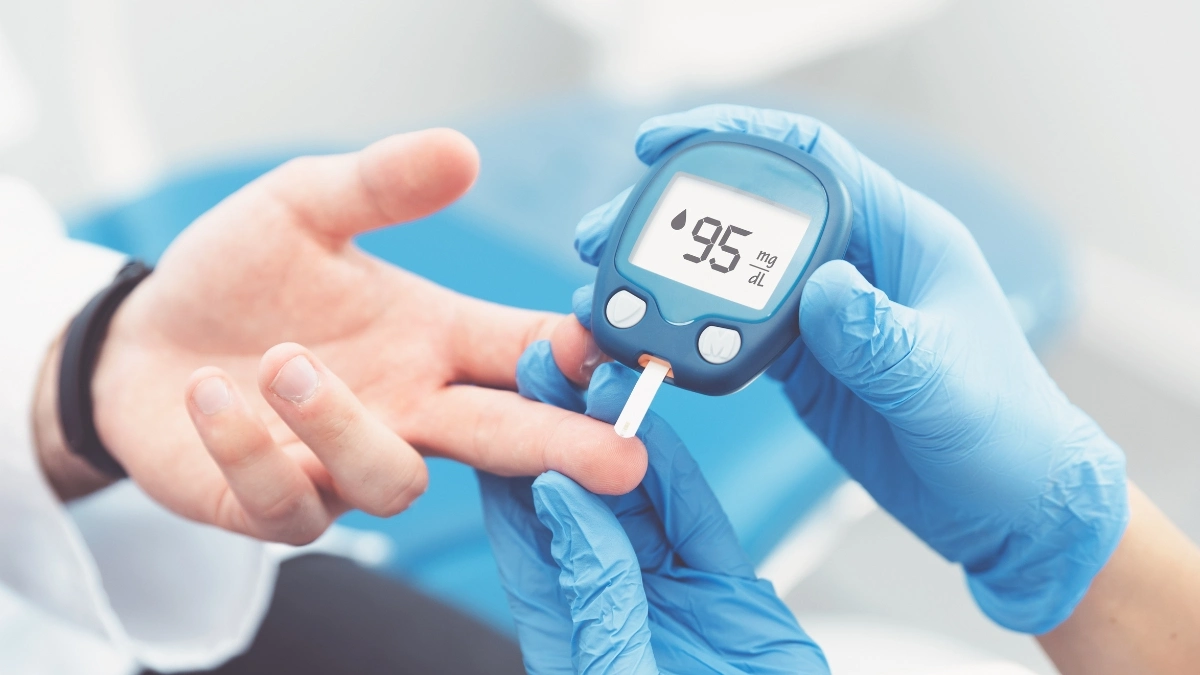
You crave sugar at 3 PM every day. You get hangry when meals are late. These aren’t character flaws. They’re signs cortisol is messing with your blood sugar control.
High cortisol makes your cells resistant to insulin. This forces your pancreas to work harder and ages it faster. Restaurant managers show higher insulin resistance than office workers, even with similar diets.
The Pattern Matters Most
Having one or two of these symptoms doesn’t mean you’re aging fast. But if you checked off four or more, your cortisol clock is likely running ahead of schedule.
The good news? These biological age markers can reverse when you address the root cause. Your body wants to heal itself. You just need to give it the right conditions.
Notice which signs match your life. This awareness is the first step to slowing down your biological aging process.
How to Test if Cortisol Has Accelerated Your Biological Age
You need to know your real age, not just the number on your birthday cake. Biological age testing shows how fast your cells are aging compared to your calendar years.

At-Home DNA Tests Work Best TruAge and myDNAge test your saliva to measure cellular aging. These tests cost $300-500 but give you accurate results. They look at your DNA patterns to see if you’re aging faster than normal.
Check Your Cortisol Levels At-home cortisol tests measure your stress hormones through saliva samples. You spit in a tube four times during one day. Normal cortisol should be high in the morning and low at night.
Use Wearable Tech for Daily Tracking Oura Ring and WHOOP devices track your heart rate variability. This shows how well your body handles stress. Lower variability means higher stress and faster aging. These devices cost $200-400 and give you daily feedback.
Clinical Tests Give Deeper Answers Your doctor can test your telomere length and inflammation markers. Telomeres should be long and healthy. High inflammation markers like CRP show accelerated aging. These tests cost more but provide the most detailed picture.
Professional Assessment Options Functional medicine doctors offer complete biological age panels. They test 20+ markers including hormones, vitamins, and cellular health. This costs $800-2000 but gives you a full roadmap for cortisol levels testing and age reversal strategies.
The key is getting baseline numbers so you can track improvement.
7 Science-Backed Ways to Lower Cortisol and Reverse Aging
You can lower cortisol naturally and stop the aging process in its tracks. These methods work fast and the science backs them up.
Method 1: Master Your Breathing
Deep breathing is the fastest way to cut cortisol levels. Try the 4-7-8 technique: breathe in for 4 counts, hold for 7, breathe out for 8. Do this 3 times when you feel stressed. Your cortisol drops within minutes.

Method 2: Meditate for 20 Minutes Daily
Meditation reduces cortisol by 23% according to research studies. You don’t need fancy apps or courses. Sit quietly and focus on your breathing for 20 minutes each morning. Even 10 minutes helps if you’re starting out.

Method 3: Fix Your Sleep Schedule
Sleep controls your cortisol rhythm more than anything else. Go to bed at the same time every night and wake up at the same time every morning. Keep your room cool and dark. Your cortisol should peak at 8 AM and drop to almost zero by 11 PM.

Method 4: Time Your Exercise Right
Morning workouts help stress hormone reduction. Exercise between 6-9 AM to work with your natural cortisol peak. Avoid intense workouts after 6 PM because they spike cortisol when you need it to drop. Walking, swimming, and yoga work best for cortisol balance.

Method 5: Eat Anti-Inflammatory Foods
Sugar and processed foods spike cortisol. Instead, eat foods that fight inflammation: fatty fish, leafy greens, berries, and nuts. Ashwagandha supplements reduce cortisol by 30% in studies. Take 300-500mg twice daily with meals.

Turmeric and green tea also help. Add turmeric to your cooking and drink 2-3 cups of green tea daily.
Method 6: Get Outside Every Day
Forest bathing drops cortisol within 15 minutes. You don’t need a forest – any green space works. Spend 20 minutes outside without your phone. The combination of nature, sunlight, and fresh air resets your stress system.

Morning sunlight is especially powerful. Get outside within 30 minutes of waking up. This sets your circadian rhythm and keeps cortisol levels healthy all day.
Method 7: Build Strong Relationships
Loneliness raises cortisol more than most people realize. Spend time with people who make you laugh and feel supported. Even 10 minutes of good conversation can drop stress hormones. Hugging releases oxytocin, which directly blocks cortisol production.

Professional Help When You Need It
Sometimes you need expert support for cortisol and aging reversal. Therapists can teach you advanced stress management skills. Functional medicine doctors can test your hormone levels and recommend targeted supplements.

Don’t try to do everything at once. Pick 2-3 methods that fit your life and stick with them for 30 days. You’ll see changes in your energy, sleep, and how you handle stress.
The 5-Minute Daily Starter Plan
If you’re overwhelmed, start here: 5 minutes of deep breathing when you wake up, 10 minutes outside during lunch, and 5 minutes of gratitude before bed. This simple routine begins your cortisol reset immediately.

Remember, small changes add up to big results. Your cells start repairing themselves as soon as your cortisol levels drop.
Advanced Techniques to Optimize Cortisol for Longevity
Ready to take cortisol optimization to the next level? These longevity strategies require more commitment but deliver faster biological age reversal results.
Intermittent Fasting Resets Your Cortisol Clock
Eat only during an 8-hour window each day. Dr. Rhonda Patrick’s research shows this syncs your cortisol with your natural rhythm. Your stress hormones drop during fasting periods, giving your cells time to repair.

Cold Therapy Creates Good Stress
Take 2-minute cold showers or ice baths three times per week. This hormetic stress actually lowers baseline cortisol while building resilience. Start with 30 seconds of cold water at the end of regular showers.

Fix Your Light Exposure
Get bright light within 30 minutes of waking up. Use blackout curtains and blue light blockers after sunset. Dr. Peter Attia calls this “circadian hygiene” because it keeps cortisol high in the morning and low at night.

Try Advanced Supplement Protocols
Phosphatidylserine taken before bed lowers nighttime cortisol by 20%. Rhodiola in the morning improves stress response all day. Magnesium glycinate helps both sleep and cortisol regulation.

Consider Professional Interventions
Hormone replacement therapy can rebalance cortisol in people over 40. Bioidentical hormones work better than synthetic versions. You need blood work and a qualified doctor for this approach.
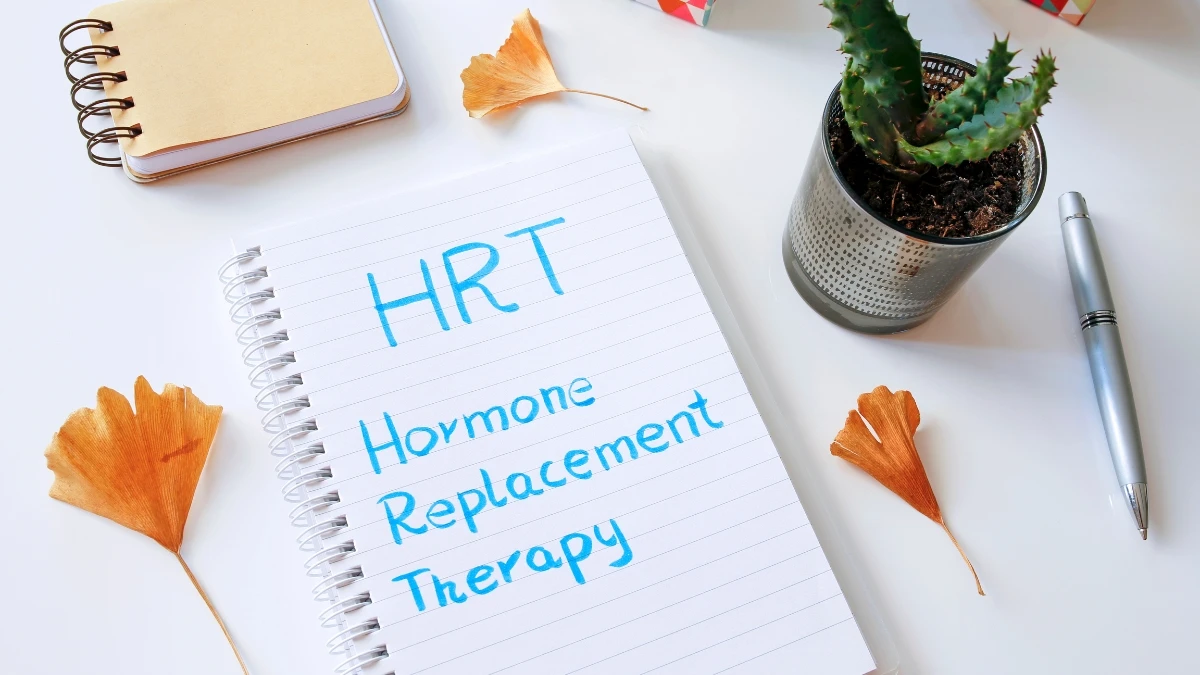
Combine Methods for Best Results
Stack 2-3 techniques together for maximum impact. Try intermittent fasting plus cold therapy, or light therapy plus targeted supplements. Don’t attempt all methods at once.
These advanced longevity strategies work faster than basic techniques. But they require consistent effort and sometimes professional guidance to do safely.
Your 30-Day Cortisol Reset Plan to Slow Biological Aging
This cortisol reset plan gives you a clear roadmap to reverse stress aging. Follow it step by step for the best results.
Week 1-2: Build Your Foundation Fix your sleep first. Go to bed at the same time every night for 14 days straight. Set an alarm to remind you when it’s bedtime.
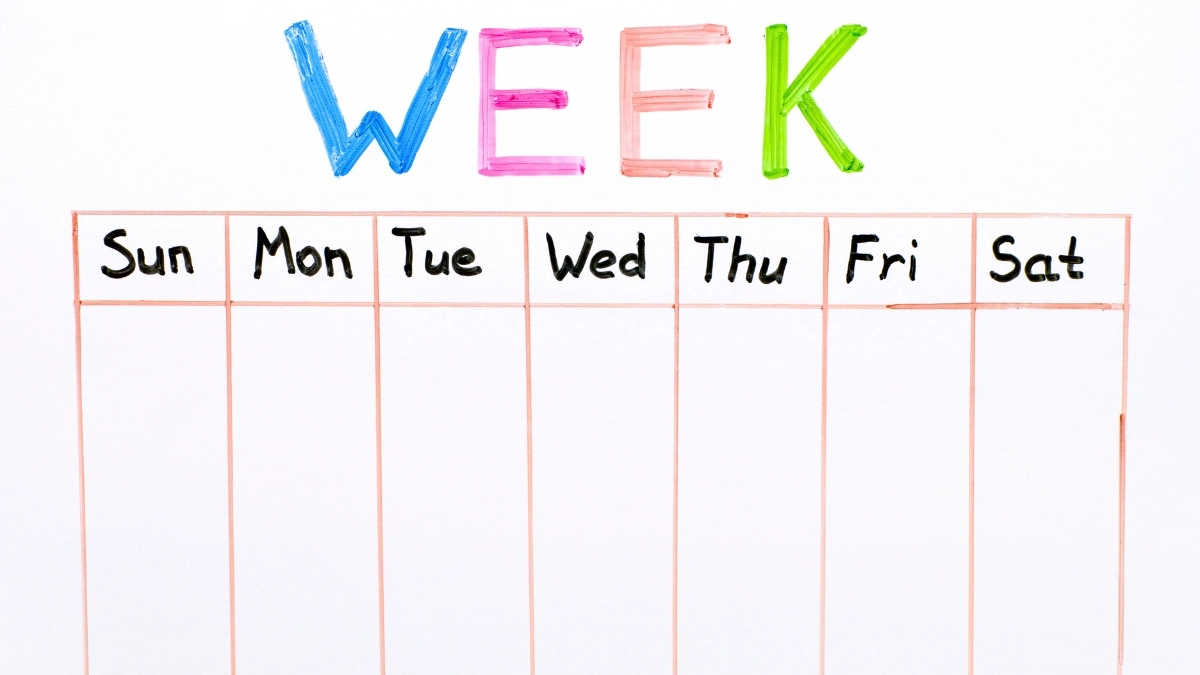
Do a stress audit next. Write down what stresses you out each day. Rate each stressor from 1-10 so you know what to tackle first.
Start 10 minutes of daily meditation. Use any app or just sit quietly and breathe. This builds the habit before you add harder techniques.
Week 3-4: Add Advanced Methods Pick one supplement like ashwagandha or magnesium. Take it at the same time each day. Don’t add more than one new supplement per week.
Try cold showers for 30 seconds at the end of your regular shower. Work up to 2 minutes by the end of week 4.
Add 20 minutes of outdoor time daily. Walk outside, sit in your yard, or eat lunch in the sun.

Track Your Success Rate your energy, sleep, and stress daily from 1-10. Take photos to see physical changes. Use a fitness tracker if you have one for heart rate data.
Common Problems and Fixes You’ll want to quit around day 10. This is normal. Just do one thing that day, even if it’s only 2 minutes of meditation.
Your sleep might get worse before it gets better. Stick with your bedtime routine anyway.
Long-Term Maintenance After 30 days, keep 3 habits that work best for you. This anti-aging action plan works only if you stay consistent long-term.
Conclusion:
Chronic stress and high cortisol don’t just make you feel bad. They literally speed up cortisol and aging at the cellular level, making you biologically older than your calendar age.

The good news? You can reverse this damage with simple daily actions. Fix your sleep, meditate for 20 minutes, spend time outside, and take proven supplements like ashwagandha.
These aren’t just feel-good tips. They’re scientifically proven methods for biological age reversal that work in weeks, not years.
Start with one technique today—your future self will thank you for every day you slow down your biological clock. Your cells are listening to every choice you make.






